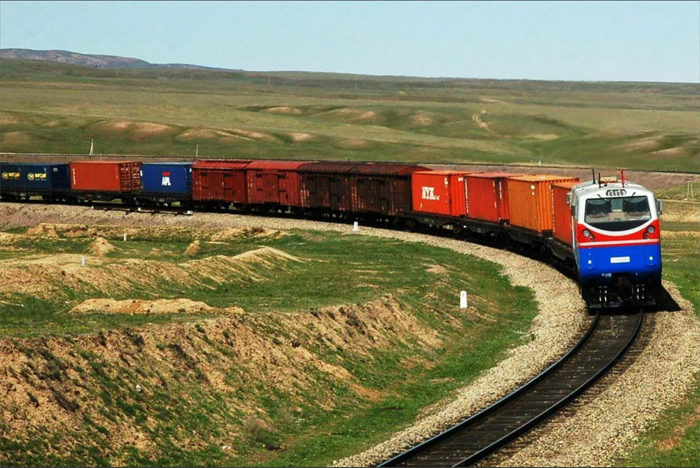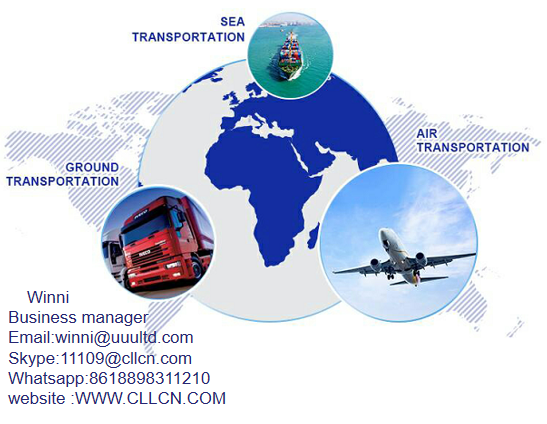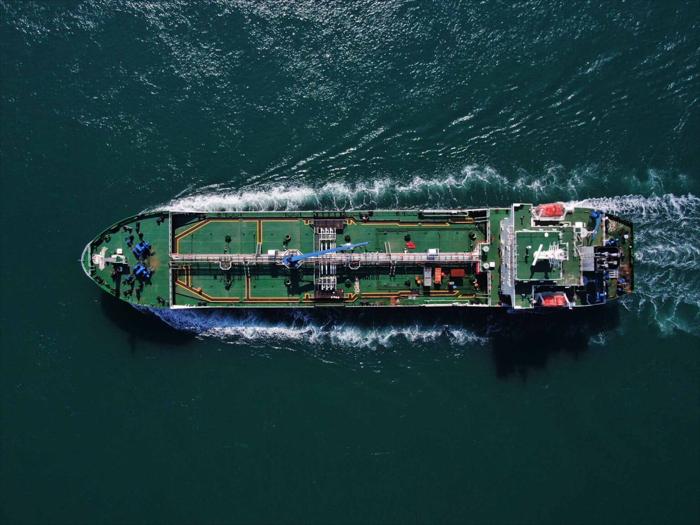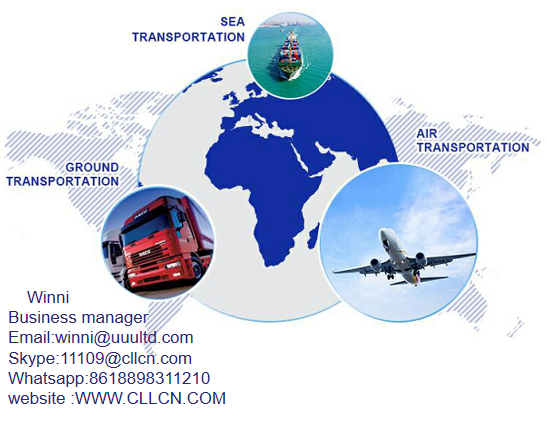New Silk Road trains crossing the China-Kazakhstan border have increased by 14.6 per cent till May this year, with an overall volume of 5.903 trains. Alashankou terminal contributed to the volume with 2.714 trains whereas traffic via Khorgos terminal amounted to 3.189 with a year-on-year growth of 10.4 per cent and 18.4 per cent, respectively. This was revealed by China Railway, the national railway company of China.
When talking about New Silk Road trains, the China-Kazakhstan border in Xinjiang plays a significant role as the majority of the volume transported between Europe and China is reloaded here. Khorgos terminal ranked first as the busiest cross-border terminalin the country. It processed over 7.000 China Europe Express trains in 2022.
Alashankou, which used to be the busiest border crossing, is currently undergoing renovation for capacity expansion and therefore handled less trains. Currently, the Alashankou terminal has the capacity of handling 17 trains per day, 21 at its best scenario, with an estimated capacity of digesting 200.000 TEU per year. This resulted in cargo being redirected to the Khorgos border crossing this year, specifically cargo between China and Central Asian countries (except for Kazakhstan).

Expanding rail
There is an ongoing decline in freight rates and the possibility of a "liner bear market" in the shipping industry. Several factors are exacerbating the situation, including slow demand recovery, rising fuel costs, increased operational expenses, and oversupply of vessels. The latter is attributed to the influx of new container ships entering the market. In the current context, the container lines' profitability is expected to suffer in the coming months due to the inability to pass on increased costs to customers. Yet, some carriers are resorting to aggressive pricing strategies, including below-cost rates, to attract customers and gain a competitive edge. The industry's recovery is highly dependent on resolving supply chain bottlenecks and improving global trade conditions.
The shortsea market is experiencing turbulence. Weak demand, influenced by economic uncertainties and reduced trade activity, is negatively impacting its profitability. Shortsea shipping companies are exploring strategies like network consolidation, digitalization, and eco-friendly initiatives to improve efficiency and reduce costs.
Automobile
- The International Road Transport Union has introduced a new plan to address the truck driver shortage. One approach to addressing the issue and ensuring the smooth operation of essential road transport services involves implementing uncomplicated strategies to manage the global supply and demand of labor. This includes facilitating legal immigration processes and taking measures to prevent the mistreatment of non-resident drivers. However, the plan misses the underlying issues causing the driver shortage such as low wages, long working hours, and challenging working conditions.
Ports
- The deal between COSCO Shipping Ports and Hamburg's Container Terminal Tollerort (CTT) has been finalized. COSCO has acquired a minority shareholding in CTT (24.99%), strengthening its presence in the port of Hamburg.
Routes, rates & services
- Southeast Asia and China are working to enhance rail connections for the transportation of fruits. The first train left from Bac Giang in Vietnam and arrived in the border city of Pingxiang in China. Future connections will enable faster and more reliable transportation, making Southeast Asian fruit exports more competitive in the Chinese market.
- Kazakhstan's national railway company, Kazakhstan Temir Zholy (KTZ), has imposed a ban on the import of jet fuel by rail from Russia. The ban comes as a result of concerns over the quality and safety of the imported jet fuel. The ban will impact the supply of jet fuel to airports in Kazakhstan, potentially leading to disruptions in air travel and affecting airlines operating in the country.
- A new distribution center for the Yixinou China-Europe freight train has opened in Duisburg, Germany. The Yixinou train is part of the China-Europe rail network, which aims to facilitate trade and connectivity between China and Europe.
- Pacific International Lines has introduced a new service called the Korea-China Straits (KCS) service. The rotation will be Pusan – Kwangyang – Shanghai – Shekou – Singapore – Port Kelang (Westport) – Penang – Singapore – Ho Chi Minh (Cat Lai) – Nansha – Pusan.
- Rhenus Logistics and Kazakhstan Temir Zholy have formed a partnership to enhance the Middle Corridor. The collaboration seeks to attract more businesses and freight volumes enhancing the routes’ competitiveness. The Middle Corridor offers advantages such as shorter transit times, reduced costs, and lower carbon emissions compared to other routes.
- Regional Container Lines is expanding its focus beyond Asia in order to generate additional revenue and overcome increasing competition. The company aims to capitalize on emerging markets and trade opportunities in regions such as Africa and South America. RCL is also targeting more reefer business and fleet renewal.
- Barge operators along the Rhine River have implemented surcharges due to a rapid decline in water levels. The low water levels on the Rhine River have caused difficulties for barge transportation, impacting cargo movements. The surcharges aim to compensate for the lower cargo capacity and maintain profitability for barge operators.
- Orient Overseas Container Line has expanded its services on the China-Indonesia route. CIS2 directly connects multiple ports in China with Indonesia and the Philippines to cater to the increasing demand in the market.
- Samskip is expanding its operations in Central and Eastern Europe. Its services will connect key locations in the region, including countries such as Poland, the Czech Republic, Slovakia, Hungary, and Romania.
Other
- Despite a labor agreement, certain ships bound for the West Coast are still facing delays. The delays are attributed to various factors, including congestion at ports and ongoing supply chain disruptions.
- The dissolution of the 2M Alliance will bring significant changes to container trades. On the Far East-Europe trade, it seems unlikely that Maersk will be able to maintain equivalent port coverage as a standalone operator. In terms of transpacific trade, the situation is slightly different, primarily due to the Jones Act and the geographical layout of North American ports. These factors make transshipment a less feasible option for ensuring extensive port coverage. In reality, Maersk and MSC have already begun to separate their networks in this trade.
These are only several changes that occurred in more than 250 bn freight rates across 25 million routes with more than 1 million market players. Want to share some news about your company, services, and routes? Just post them on MAXMODAL, a multimodal network that digitally connects routes and rates worldwide to automate sales and operations across container transportation & logistics industry. Join to innovate.


ROYAL KFA NIGERIA LIMITED is a duly registered company in Nigeria since 2010,dedicated professional Shipping, Logistics, Clearing and Forwarding agency.
Our services Import and Export both Air & Sea, Warehousing and Door to Door Cargo.
We are confident that our infrastructure and expertise will provide the level of efficiency and reliability that your organization requires as our aim is to help our client attain great height by promptly attending to their shipping wants.
For more information --
214/215 Muritala Muhammad international airport Nahco.
+2348035776714 +2348076925495
Email-royalkfanigeria@gmail.com
Thanks.
The ripple effects from the West
The US West Coast ports, including Los Angeles and Long Beach, have finally achieved a sense of calm after months of congestion. Overall, the experienced delays are estimated to be worth around $5 billion. They will also most likely cause ripple effects throughout the supply chain, impacting trucking, warehousing, and distribution operations. As of now, it is reported that the backlog of vessels and containers has significantly reduced, thanks to increased productivity and measures such as extended gate hours. However, the challenges in the region have not been fully averted. ILWU workers in Canada agreed to strike action to support their new contract negotiations. Shippers are also facing restrictions on the Panama Canal, where water levels have reached record lows. These difficulties have caused delays, congestion, and disruptions to the supply chain.
Routes, rates & service
- Drewry’s Asia-North Europe component fell 7% this week, to $1,349 per 40ft. WCI has witnessed the biggest decline in the last 6 months ending at $1,592. This decline comes despite the looming threat of congestion on the US West Coast. FMC has received complaints about alleged price dumping by certain carriers operating on the transatlantic route. The situation has prompted calls for increased regulation and oversight to prevent unfair pricing practices.
- Port Houston is set to experience a boost in volumes with the introduction of new intermodal rail services. Its strong exports are expected to continue, driven by the sustained high demand for resin exports.
- CMA CGM has introduced an overweight fee for shipments originating from India and bound for Europe. Starting from July 1st, a fresh charge of $100 per TEU will be imposed exclusively on dry cargo containers weighing over 22 tons.
- A GRI from India to the United States and Canada was announced by HMM. Box rates from 1 July will be $900 per TEU, $1,000 per FEU, $1,125 per high cube container, and $1,266 per 45-foot container.
- LTG Cargo has established a regular intermodal link between Kaunas in Lithuania and Slawkow in Poland. The new route provides an alternative to road transport, reducing congestion and carbon emissions.
- China is strengthening its rail links in Southeast Asia, with a particular focus on Malaysia. The cargo was shipped from Chongqing, China, to Padang Besar, Malaysia. The project involves the development of rail infrastructure, including the construction of new rail lines and upgrades to existing ones.
- CMA CGM keeps expanding its presence in Spain. As part of its recent endeavors, the company has obtained ownership stakes in two terminals that are operated by Cosco Shipping Ports (CSP) Spain.
- Express intermodal service has been launched, connecting Hong Kong and Moscow. It combines the efficiency of rail and road transport to expedite cargo movement between the two locations.
- DP World has introduced a significant modal shift plan in the UK. The plan aims to encourage a shift from road to rail and inland waterways for freight transportation. DP World is offering financial incentives to companies that choose more sustainable transport modes. The incentives include discounted rail and waterway fees, reducing the overall transportation costs for businesses.
- The Yixinou-Jingdong China-Europe freight train has embarked on a journey from Yiwu, China, to Duisburg, Germany. The train is part of the New Silk Road initiative, which aims to strengthen trade and connectivity between Asia and Europe.
- Vietnam is actively pursuing enhanced cooperation with China in the field of railroads. It wants to open the China-Laos rail link. Improved rail connectivity is expected to boost trade volumes and enhance economic cooperation in the region.
- CMA CGM has announced a reshuffle of its North Europe-East Med-Levant service. The new rotation is: Felixstowe – Hamburg – Rotterdam – Antwerp – Le Havre – Malta – Alexandria – Port Said West – Beirut – Iskenderun – Mersin – Salerno – Tanger Med – Felixstowe.
- A new service connecting Asia and Turkey by CMA CGM with the rotation Shanghai – Ningbo – Nansha – Singapore – Jeddah – Iskenderun – Malta – Misurata – Jeddah – Port Klang – Shanghai.
- Maersk has revealed plans to include an additional port stop in its ocean shipping service Shaheen Express, commencing in early July. The Shaheen Express will rotate between Jebel Ali, Mundra, Pipavav, Jebel Ali, and Sohar, with the aim of creating a stable and reliable service for the India-UAE-Oman corridor.
Other
- In China, the average duration of container ship stays in ports has decreased. The trend indicates improved efficiency in port operations and vessel turnaround times. However, in the US West Coast ports, the dwell time significantly increased. It is partly attributed to the surge in import volumes and the imbalance between imports and exports.
- FMC has taken action to prevent carriers from unreasonably turning down business. The initiative aims to address concerns raised by shippers regarding carriers' refusal to transport their cargo. Carriers have been accused of rejecting cargo bookings without valid reasons, leading to disruptions in supply chains.
These are only several changes that occurred in more than 250 bn freight rates across 25 million routes with more than 1 million market players. Want to share some news about your company, services, and routes? Just post them on MAXMODAL, a multimodal network that digitally connects routes and rates worldwide to automate sales and operations across container transportation & logistics industry. Join to innovate.











